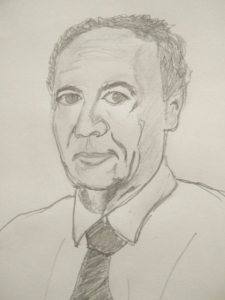by Jennifer Riggins
Back in ’98, someone wrote: “The microprocessor is one of the greatest accomplishments of the twentieth century.” Since it enables our connected and computed world, I’m not going to be one to disagree. And the impact of Intel on our lives is no small fete by making the benefits of the microprocessor more micro and particularly shrinking the price, taking computers from Ivy League and defense contracts to our pockets and homes. The single person responsible for all of this innovation that resulted from the microchip was Intel’s Andy Grove. He led an extraordinary life that took him through holocaust, revolution, and being a Hungarian refugee in the U.S. through to helping build one of the most important founders of the spirit of Silicon Valley.

After he passed this week, we’re not going to dwell on the impact he had on the tech industry today. Instead we are going to talk about his greater impact on leadership as one of the progenitors of modern management. While you can certainly look at him as the builder of the Silicon Valley, you can also look at him as the builder of the Silicon Valley culture.
While Grove wasn’t known to wear turtlenecks or t-shirts during TED talks, he was perhaps the creator of the first open-door management policy. Definitely an engineer who believed in constantly measuring for improvement and success, he had a reputation with everyone in the Valley as someone who anyone could come to and ask for advice or complain to, including any member of his company.
Grove was one of the original dogfooders (long before Amazon coined the phrase) and experimenters, taking his management techniques for a test drive on the employees of Intel, which he then, like so many, wrote a bunch of books about it all, including High Output Management, which despite its industrial-sounding name, this book as old as me still stands as the “bible” of good leadership.
Andy Grove invented agile before it had a name.
Business success contains the seeds of its own destruction. Success breeds complacency. Complacency breeds failure. Only the paranoid survive.
The last line became the title of his most famous book. Now this doesn’t sound like a quote from an open-minded manager but this is how he presented a world of experimentation to prepare for the constantly changing world. Grove put into effect a top-down initiative encouraging bottom-up innovation, creating an environment where it was safe to fail where every Intel employee was welcome to test new products, techniques and sales channels.
And of course while Grove built an environment that’s great for teams, he understood that innovation is best welcomed when linked with business strategy and, of course, competitiveness. And we in the world of happy workers know that feeling valued is a great motivator at work, and Grove was one of the first bosses to say openly: speak up, question me, debate, so we can continually improve.
Andy Grove understood that performance management has to be regular and personal.
In his book Only the Paranoid Survive, Grove wrote: “People in the trenches are usually in touch with impending changes early.”
Cyber-governance strategist Bob Barker wrote this week about how one of the most important management strategies was penned by Grove more than 30 years ago: one-on-one meetings. These 1-on-1’s address non-urgent yet important topics that arise between meetings. Any topic and any time for the meeting is mutually agreed upon, evening the coaching playing field. And, perhaps still to this day most “radical,” Grove said that the subordinate should do 90 percent of the talking during this meeting.
And then perhaps the most important quote to end with isn’t by this tech and management visionary but what Silicon Valley venture capitalist Ben Horowitz said in an introduction of Grove last year at an awards ceremony: “If a political refugee ends up on our shores, we need to embrace her because she may end up being the next Andy Grove.”
Andy, your loss echoes throughout the tech world, but your life will remain as an example of true leadership and compassion.
Header Image: Jon Tyson (Unsplash)

